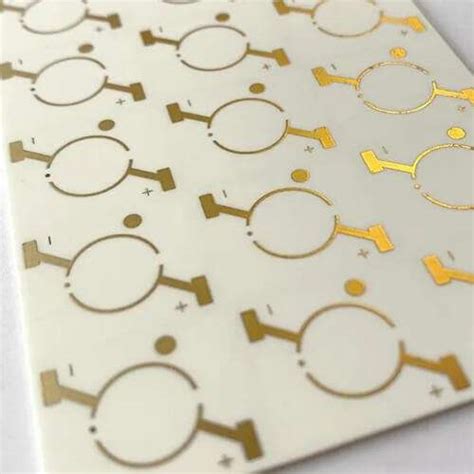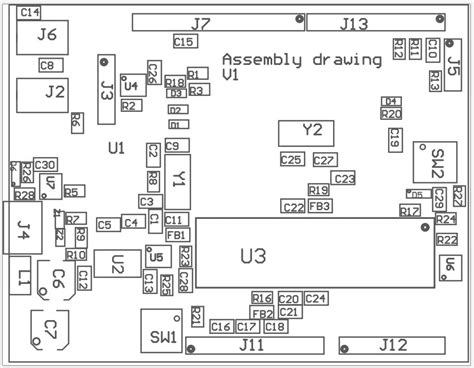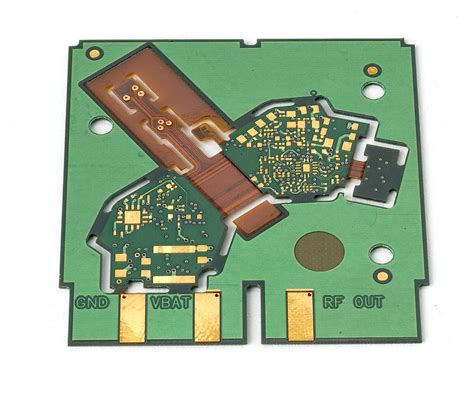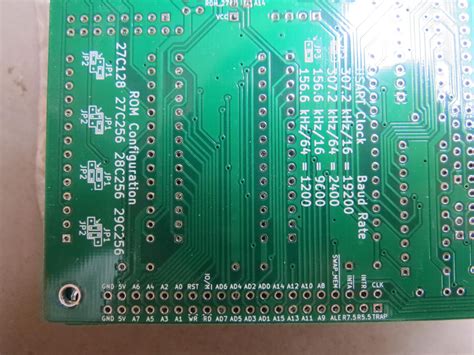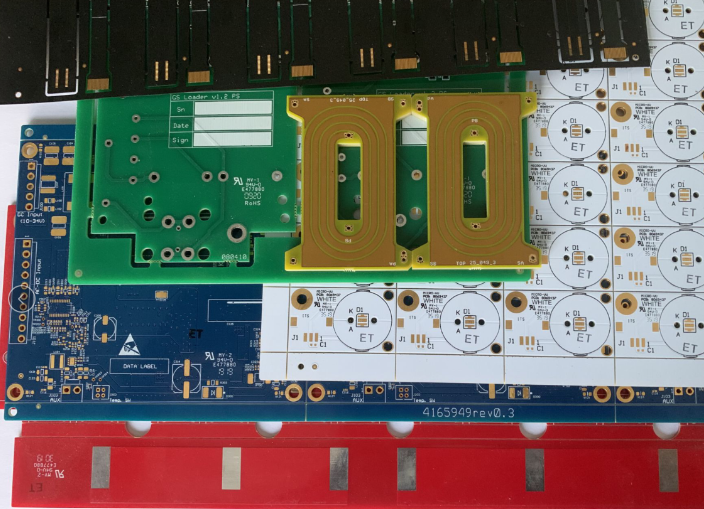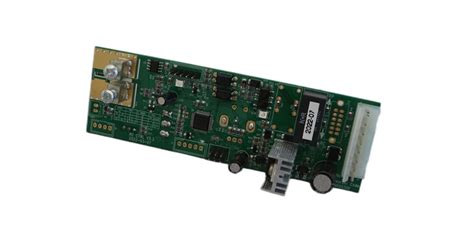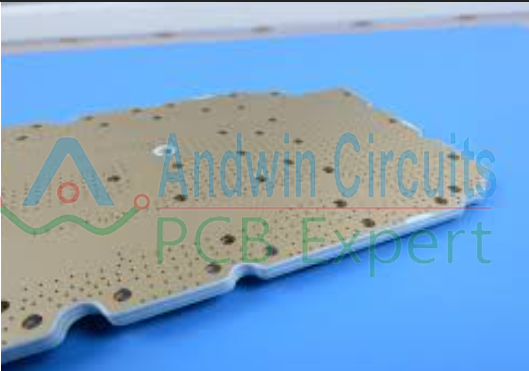Choosing the Right Alumina PCB Manufacturer for Your Needs
Key Takeaways
When embarking on the journey of selecting an alumina PCB manufacturer, it’s crucial to grasp the nuances that set one manufacturer apart from another. Understanding the advantages of alumina PCBs is a primary factor; their properties often make them superior for specific applications. For instance, their high thermal conductivity and exceptional dielectric strength can significantly enhance the performance of your electronic products. In your decision-making process, you should evaluate the pcb manufacturing companies based on their expertise and industry experience. A manufacturer’s track record in pcb manufacturing can provide insights into their capability to meet your unique requirements.
As you navigate through options, consider the pcb manufacturing cost in relation to quality. Often, a lower cost may compromise performance or reliability, so finding a balance is key. Don’t overlook quality control and compliance standards as these factors are essential for ensuring that the products will meet industry regulations and function effectively in your applications. Lastly, reliable customer support can make a significant difference; after all, establishing a partnership with a manufacturer doesn’t end once you place an order—ongoing communication is vital for a successful pcb manufacturing business. By keeping these considerations in mind, you can confidently choose an alumina PCB manufacturer that aligns with your project needs and expectations.
Choosing the Right Alumina PCB Manufacturer: Key Considerations
When selecting an alumina PCB manufacturer, there are several key considerations that can significantly influence your project’s success. First and foremost, you must assess the expertise and experience of the manufacturer within the pcb manufacturing business. A company with a strong background in alumina technology will likely offer better quality products and more reliable service.
Next, you should evaluate various pcb manufacturing companies based on their adherence to quality control standards and compliance with industry regulations. A transparent approach to quality management ensures that you receive products that meet your specific performance requirements. Additionally, comparing pcb manufacturing costs among different manufacturers can help you find a competitive balance between price and quality.
Here’s a summary table of considerations:
| Consideration | Importance |
|---|---|
| Manufacturer’s Expertise | Ensures quality and innovation |
| Quality Control Standards | Reduces risk of defects |
| Cost vs. Quality | Balances budget with requirements |
Finally, remember to consider customer support services offered by potential manufacturers. Effective communication can streamline your project’s progress and foster a reliable partnership for ongoing needs.
“Always request samples before finalizing your choice to ensure compatibility with your project specifications.”
By keeping these factors in mind, you’ll be well-equipped to select an alumina PCB partner that aligns perfectly with your needs, ensuring optimal performance for your projects moving forward. For more information on reputable manufacturers, you can explore further at Andwin PCB.
Understanding the Advantages of Alumina PCBs
When considering the use of alumina PCBs in your projects, it’s important to recognize the distinct advantages they offer within the realm of pcb manufacturing. One significant benefit is their superior thermal conductivity, which ensures that heat is effectively dissipated. This property is especially crucial in applications that require consistent performance under heat stress, such as high-powered electronics. Additionally, alumina PCBs are known for their excellent electrical insulation properties, making them suitable for high-frequency and high-voltage applications. They also exhibit strong mechanical strength and durability, which contributes to their longevity in various environments.
Furthermore, choosing alumina PCBs can be cost-effective in the long run. While the initial pcb manufacturing cost may be higher compared to other materials, the reliability and reduced maintenance needs can yield cost savings over time. This balance highlights why understanding your specific requirements is essential when selecting a manufacturer among various pcb manufacturing companies.
Lastly, one must also consider flexibility in design; alumina allows for intricate patterns that can accommodate complex circuits. This adaptability is vital for businesses looking to optimize their PCB layouts for better performance and efficiency in their pcb manufacturing business. In summary, recognizing these advantages will aid you in making informed decisions when sourcing your next alumina PCB project.
Important Factors to Assess When Selecting a Manufacturer
When selecting an alumina PCB manufacturer, several key factors come into play that can significantly impact the performance and reliability of your product. First and foremost, consider the expertise and specialization of the manufacturer in PCB manufacturing. A company with a strong track record in developing and producing high-quality alumina PCBs is crucial; this ensures that they understand the unique requirements and potential challenges associated with this material. You should also evaluate their manufacturing processes — a reputable manufacturer will employ advanced techniques, which can lead to better precision, performance, and durability.
Next, pay attention to their quality control measures. The best manufacturers will have stringent quality checks throughout their production processes, ensuring that every batch meets your specifications without defects. Additionally, examine their compliance with industry standards; being certified often indicates reliability in their operations.
Finally, don’t ignore the importance of customer support and service reliability. This can make a significant difference in communication and addressing issues as they arise throughout your project timeline. When you consider all these factors together—expertise in PCB manufacturing, quality management, compliance standards, and customer service—you’re more likely to find a manufacturer that aligns perfectly with your specific needs for the PCB manufacturing business, helping you achieve an optimal balance between cost and quality without compromising on performance.
Evaluating Manufacturer Expertise and Industry Experience
When selecting an alumina PCB manufacturer, it’s crucial to evaluate their expertise and industry experience. Look for manufacturers that have a proven track record in the PCB manufacturing business. Experience often correlates with a deeper understanding of the nuances involved in producing high-quality alumina PCBs, which can significantly impact your project’s success. Discover how long they’ve been in the PCB manufacturing industry and whether they have experience working with customers in your specific sector. Additionally, inquire about their familiarity with different pcb manufacturing processes, as this could affect both the quality and the pcb manufacturing cost. Be sure to assess their past projects and customer testimonials, as these insights can provide valuable information regarding their reliability and service capabilities. A company that is well-versed in the challenges of alumina PCBs can better anticipate potential issues, ensuring that your requirements are met efficiently and effectively. Investing time to evaluate these aspects will help you find a manufacturer that not only fits within your budget but also delivers on quality, aligning perfectly with your project demands.
Cost vs. Quality: Finding the Right Balance
When selecting an alumina PCB manufacturer, one of the most critical aspects to consider is the delicate interplay between cost and quality. While it may be tempting to choose a manufacturer solely based on the pcb manufacturing cost, it’s essential to remember that lower prices can often mean compromises in quality. The pcb manufacturing companies that consistently deliver high-quality products typically invest in advanced technology, robust processes, and skilled labor, which can increase their production costs. Therefore, evaluating your project’s specific requirements is crucial. You should assess whether you need a high-volume supply or an intricate design that demands precision—this will significantly influence your decision-making process. A well-informed choice could mean selecting a slightly more expensive option that guarantees reliability and performance over time, thus ensuring that your pcb manufacturing business thrives. Prioritizing quality may lead to reduced failures and long-term savings, making it worth the investment. Ultimately, aiming for a balance between cost and quality in your decision will pave the way for successful project outcomes and foster enduring relationships with reliable suppliers.
Exploring Different Manufacturing Processes for Alumina PCBs
When venturing into pcb manufacturing, particularly with alumina PCBs, it’s crucial to understand the various manufacturing processes available. These processes can significantly affect your product’s quality and performance. Common techniques include screen printing, laser etching, and photolithography, each offering distinct advantages. For instance, screen printing is often favored for its ability to produce high-quality patterns, making it ideal for intricate designs. On the other hand, laser etching allows for precise cuts with minimal waste, which can be beneficial in reducing overall pcb manufacturing costs. Ensure that any potential pcb manufacturing company you consider is well-versed in these techniques and can demonstrate expertise in delivering consistent results. Another aspect to consider is how these methods fit into your specific project requirements; different applications may benefit from different processes. Understanding these manufacturing nuances can help you gauge which company aligns best with your goals in the pcb manufacturing business while optimizing both performance and budget considerations.
Ensuring Quality Control and Compliance Standards
When selecting an alumina PCB manufacturer, one of the most critical aspects to consider is their approach to quality control and compliance with industry standards. You want to partner with a manufacturer that not only has a robust quality assurance process in place but also actively adheres to recognized standards such as ISO 9001. This commitment ensures that your PCB manufacturing requirements are met consistently, reducing the likelihood of defects and enhancing the reliability of your final products.
In the competitive landscape of PCB manufacturing companies, manufacturers often utilize advanced technologies and testing procedures to maintain high-quality outputs. Look for companies that employ rigorous testing phases, including thermal cycling, moisture sensitivity tests, and electrical performance assessments. These tests are essential for validating the integrity and electrical properties of the alumina PCBs produced.
Moreover, understanding the manufacturer’s compliance with local and international regulations can greatly influence your choice. Compliance not only protects your business interests but also assures you that the materials used in their processes meet essential safety standards, which is increasingly important in various industries today.
Lastly, consider how transparent the manufacturer is regarding their quality control protocols. A manufacturer that provides thorough documentation and is willing to share their quality metrics showcases a dedication to quality—an essential characteristic to look for in a successful pcb manufacturing business. By prioritizing these factors, you can ensure that you select an alumina PCB manufacturer capable of delivering products that meet both your specifications and regulatory requirements effectively.
Assessing Customer Support and Service Reliability
When selecting an alumina PCB manufacturer, evaluating their customer support and service reliability is crucial. You need to ensure that the manufacturer is responsive and can address your needs promptly. This means that their customer service team should be knowledgeable about the PCB manufacturing process and capable of providing assistance at every stage—from initial design consultations to post-production support. It’s advisable to inquire about their availability for communication; ideally, they should offer multiple channels such as phone, email, and live chat. Additionally, considering warranties and after-sales support can be a significant factor in your decision-making process. Reliable support can make a difference, especially if you encounter issues with PCB manufacturing costs or require adjustments during production. Checking reviews and feedback from other clients regarding their experiences with the manufacturer’s customer service will also aid you in understanding how well they manage relations. Remember that choosing a manufacturer who prioritizes service reliability not only enhances your project’s efficiency but can also contribute positively to the overall success of your PCB manufacturing business.
Conclusion
Choosing the right alumina PCB manufacturer is crucial for your pcb manufacturing business. As you evaluate potential pcb manufacturing companies, it is essential to focus on several key elements that contribute to optimal performance. First, consider the pcb manufacturing cost, as this often reflects the quality you can expect. Striking the right balance between cost and quality ensures that you get value for your investment. Additionally, take into account the manufacturer’s expertise and experience in the industry. A solid understanding of alumina PCBs and their unique properties can significantly affect their performance in your applications. Finally, effective communication and reliable customer support from the manufacturer are vital components that will directly impact your project timelines and overall satisfaction. By keeping these factors in mind, you will be well-equipped to make an informed decision that meets your specific needs and enhances your project outcomes.
FAQs
What are alumina PCBs, and why are they used?
Alumina PCBs, or printed circuit boards made from alumina, are known for their high thermal conductivity and electrical insulation properties. They are ideal for applications requiring robust performance, like power electronics and high-frequency circuits.
How do I find a reliable alumina PCB manufacturer?
To find a reliable alumina PCB manufacturer, research pcb manufacturing companies that specialize in this material. Look for customer reviews, case studies, and their experience with specific applications similar to yours.
What should I consider regarding pcb manufacturing cost?
When assessing pcb manufacturing cost, consider not only the initial pricing but also the long-term value in terms of durability and performance. Lower costs might lead to compromises that don’t align with your project’s needs.
How can I evaluate the quality of a manufacturer?
Check their certifications, such as ISO standards, and inquire about their quality control processes. Understanding their commitment to consistent quality ensures that they can meet your expectations over time in your pcb manufacturing business.
What processes do alumina PCB manufacturers typically use?
Most manufacturers use advanced techniques like screen printing and laser cutting to create alumina PCBs. Understanding these processes helps you select a manufacturer capable of delivering the best results for your unique project requirements.
For further information on pcb manufacturing, please click here.

